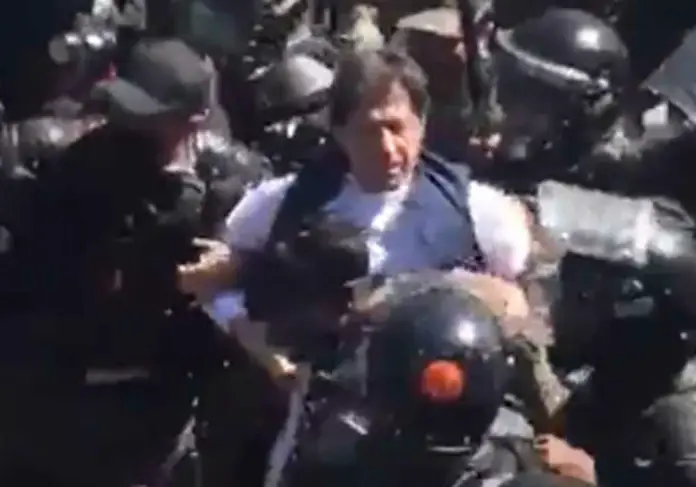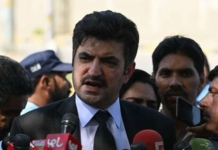Pakistan Tehreek-e-Insaf Chairman and former prime minister Imran Khan was arrested by Rangers on May 9 (Tuesday) in the Al-Qadir trust case. He was arrested from the premises of the Islamabad High Court while he was doing his biometric procedure.
The images of Imran Khan’s arrest created massive anger and uproar amongst the PTI supporters and the general public as people started to take to the streets and protest condemning the action by the state.
However, the government referred to it as an “arrest on merit” rather than a political action. Imran Khan has repeatedly accused a serving military officer of plotting his assassination. Khan’s accusations were rejected by the military media wing (ISPR) 24 hours prior, and it threatened legal action.
Imran Khan stated that he was mentally prepared for the arrest and that he was anticipating such a move before departing for Islamabad to request a bail extension.
PTI called for a nationwide protest after the former prime minister’s arrest. Party’s Vice Chairman Shah Mehmood Qureshi and other key PTI figures urged people to participate in a peaceful protest. Senior PTI leadership’s absence prevented the protesters from receiving any real direction, which led to the protest turning aggressive and causing damage to public property.
In Lahore, Karachi, Rawalpindi, Islamabad, Peshawar, Quetta, and other places, numerous protesters were also harmed and injured amid conflicts with the police. Police officers were also badly hurt during the faceoff.
A few hours after the arrest, Section 144 was enforced in Islamabad, Punjab and Balochistan to maintain peace and order, and examinations in several cities were postponed due to the violent demonstrations that persisted into the night.
According to the interior ministry’s directives, Twitter, YouTube, and a few other social media platforms were also shut down forcing people to use VPN to access social media platforms since the mainstream media has completely blacked out of the protest. The Internet was also shut down or slowed down in the country.
Some demonstrators turned their rage on the military, attacking the corps commander’s home in Lahore and besieging the army’s general headquarters in Rawalpindi.
How Khan was taken into custody also led the Islamabad High Court to open contempt proceedings against the city’s interior secretary and police chief, even though it acknowledged the detention was carried out within the guidelines. Both of these officers received letters of contempt from IHC Chief Justice Aamer Farooq, who also ordered the registrar’s office to file a case against them for ransacking the court grounds.
Political problems never have to be solved by violence or conflict, particularly when the economy is in shambles and the general public is furious about the hopelessness that now permeates every aspect of their existence. The state of Pakistan is now much more in hot water as a result of the PTI Chairman’s detention, and this will further increase popular mistrust of their actions.
If the government and relevant forces want to regain the trust of the public, it must also take significant confidence-boosting steps. Continued conflict will only widen the chasm between the people and the state as long as elections are postponed and the public is kept in the dark.







